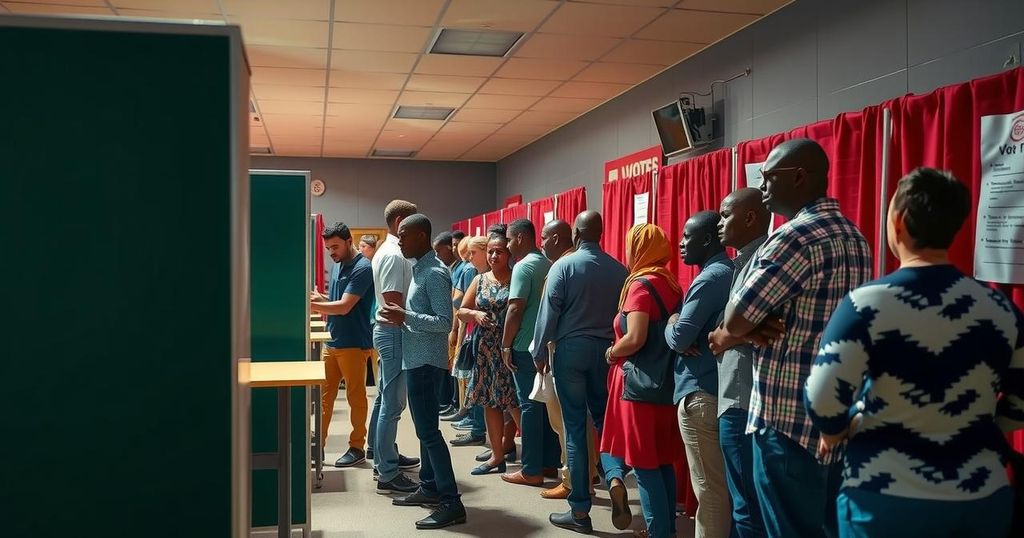Namibia Extends Election Voting Amid Allegations of Electoral Fraud
Namibia has prolonged the voting period for its elections amid ballot shortages, prompting opposition complaints of illegitimacy. The ruling SWAPO party seeks to maintain political control while facing growing frustration from the populace over economic inequalities. Voter dissatisfaction highlights a significant challenge to the established order as elections continue into the weekend.
Namibia has extended the voting period for its presidential and parliamentary elections into the weekend, following reports of ballot paper shortages at polling stations. This decision was made by the electoral management body after initial polling was scheduled to conclude on Wednesday. In response, the main opposition party, the Independent Patriots for Change, has accused the government of attempting to manipulate the electoral process, asserting that the extension is illegal and indicative of potential electoral fraud.
The vice president of Namibia, Netumbo Nandi-Ndaitwah, representing the ruling South West Africa People’s Organization (SWAPO), is vying for the presidency. If elected, she would become Namibia’s first female president. However, she faces significant resistance from a youthful electorate frustrated by economic disparities in this mineral-rich nation, which is ranked as an upper middle-income country by the World Bank but experiences severe inequality.
Long lines have been observed at polling stations, with numerous voters expressing their difficulties in accessing ballots. Elsie Nghikembua, the chairperson of the Electoral Commission of Namibia, cited “logistical” challenges as the primary reason for the delays. With approximately half of Namibia’s population, or around 1.4 million people, registered to vote, the urgency of the situation has been emphasized by frustrated citizens who have been unable to vote since the election began. “I keep coming to the same place every day without being assisted. It’s like you are a mad person,” stated Nangombe Shitaleni, a registered voter waiting in line.
The electoral challenges faced by Namibia occur in a broader context of political unrest in southern Africa, particularly highlighted by ongoing violence and protests in Mozambique after allegations of election rigging by the ruling party, Frelimo. Namibia, having gained independence in 1990, has historically conducted credible elections, earning a reputation as one of Africa’s stable democracies despite SWAPO’s longstanding dominance in government. However, the rising frustration among young voters due to high unemployment and economic hardships is propelling calls for change in leadership and governance.
In conclusion, Namibia’s decision to extend the election voting period due to logistical issues has sparked significant criticism from opposition parties alleging that the move is a guise for potential electoral manipulation. With critical elections taking place amid economic frustrations and a youthful electorate eager for change, the outcome could reflect a pivotal moment in Namibia’s political landscape. The situation demands close observation as the results will determine the future direction of governance in this mineral-rich nation.
Original Source: apnews.com




Post Comment